|
Books Should Be Free Loyal Books Free Public Domain Audiobooks & eBook Downloads |
|
|
Books Should Be Free Loyal Books Free Public Domain Audiobooks & eBook Downloads |
|
Non-fiction |
|---|
|
Book type:
Sort by:
View by:
|
By: William Bligh (1754-1817) | |
|---|---|
 A Voyage to the South Sea
A Voyage to the South Sea
A Voyage to the South Sea, undertaken by command of His Majesty, for the purpose of conveying the Bread-fruit tree to the West Indies, in His Majesty’s ship The Bounty, commanded by Lieutenant William Bligh. Including an account of the Mutiny on board the said ship, and the subsequent voyage of part of the crew, in the ship’s boat, from Tofoa, one of the Friendly Islands, to Timor, a Dutch settlement in the East Indies. | |
By: William Bradford (1590-1657) | |
|---|---|
 Bradford's History of the Plymouth Settlement
Bradford's History of the Plymouth Settlement
The journal of William Bradford, who served five terms as governor of the Plymouth colony, is an indispensable document of the events of early American history. His eyewitness account includes the stories of the Pilgrims’ sojourn in the Netherlands, the voyage of the Mayflower, the hardships of the New World, relations with the Indians, and the colony’s growth from an endangered enterprise to a thriving city. This edition of Bradford’s Of Plimoth Plantation presents the text in language made more accessible to the modern reader | |
By: William Brooke O'Shaughnessy (1809-1889) | |
|---|---|
 On the Preparations of the Indian Hemp
On the Preparations of the Indian Hemp
The author investigated the uses of cannabis resin as an anticonvulsant and relaxant in cases of tetanus, cholera, and infantile convulsions. He and others also carried out animal studies on its use, and noted its low toxicity. He recommended that British doctors assessed the drug's use in such cases. | |
By: William C. Hunter | |
|---|---|
 Pep: Poise, Efficiency, Peace
Pep: Poise, Efficiency, Peace
Colonel William Crosbie Hunter was a businessman and self-help writer who was moderately popular in the early 20th century. His books set forth his personal philosophy on health, happiness, human relations, and success in the business world. Pep, billed as "A book of how's not why's for physical and mental efficiency," was published in 1914 and went through several editions. (Introduction by Pleonic) | |
By: William Cobbett (1763-1835) | |
|---|---|
 Cottage Economy
Cottage Economy
How can you tell when your pig is fat enough? Why should you never buy mustard? What's wrong with eating potatoes? Which is better, beer or tea? And what type of straw makes the best bonnets? William Cobbett is the man to ask. Here is his book of practical advice to the rural labouring 'cottager' (first published as a part-work in 1821-22), the precursor in many ways to the handbooks on self-sufficiency that today entice so many city-dwellers. A champion of the rural working class at a time of huge... | |
By: William Cooper Howells | |
|---|---|
 Recollections of Life in Ohio, from 1813 to 1840
Recollections of Life in Ohio, from 1813 to 1840
Recollections of Life in Ohio is the autobiography of William Cooper Howells (1807-1894), father of the American novelist William Dean Howells. The Howells were Welsh woolen mill owners. William Cooper's father brought the family to America in 1808--at a time when Great Britain actually forbid skilled workmen from emigrating, thus putting the father's practical knowledge of mill machinery in great demand. Small scale industries--paper and woolen mills, flour mills, and distilleries were sprouting apace with farms in the newly opened lands of Ohio, where the Howells settled in 1813... | |
By: William D. Granger | |
|---|---|
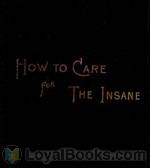 How to Care for the Insane
How to Care for the Insane
"The writer believes that all attendants should be regularly instructed in their duties, and the highest standard of care can be reached only when this is done. He also believes that every person who is allowed to care for the insane will be greatly benefited by such instruction, and will be able to learn every thing taught, if the teacher uses simple methods and is patient to instruct."As this manual was originally written in 1886, the basic medical instruction IS out-of-date and should not be used to diagnose any medical problem, nor should be used in the case of an emergency. It has been recorded for entertainment purposes only! | |
By: William Dean Howells (1837-1920) | |
|---|---|
 My Mark Twain
My Mark Twain
William Dean Howells (1837-1920) became fast friends with Mark Twain from the moment in 1869 when Twain strode into the office of The Atlantic Monthly in Boston to thank Howells, then its assistant editor, for his favorable review of Innocents Abroad. When Howells became editor a few years later, The Atlantic Monthly began serializing many of Twain’s works, among them his non-fiction masterpiece, Life on the Mississippi. In My Mark Twain, Howells pens a literary memoir that includes such fascinating scenes as their meetings with former president Ulysses Grant who was then writing the classic autobiography that Twain would underwrite in the largest publishing deal until that time... | |
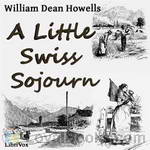 A Little Swiss Sojurn
A Little Swiss Sojurn
A charming brief account of a two months' autumnal stay on the shores of the Lake of Geneva. Howells, who was there with his family traveling from England to Italy, has a sharp eye not only for scenery and architecture, but for people and customs, both Swiss and foreign. | |
By: William E. B. Du Bois (1868-1963) | |
|---|---|
 The Souls of Black Folk
The Souls of Black Folk
“Few books make history and fewer still become the foundational texts for the movements and struggles of an entire people....” One such great work was The Souls of Black Folk by William EB Du Bois. Published in 1903, it is a powerful and hard-hitting view of sociology, race and American history. It became the cornerstone of the civil rights movement and when Du Bois attended the first National Negro Conference in 1909, he was already well-known as a proponent of full and unconditional equality for African Americans... | |
By: William F. Cody | |
|---|---|
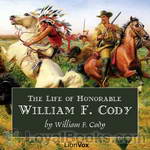 The Life of Honorable William F. Cody
The Life of Honorable William F. Cody
The life and adventures of Honorable William F. Cody–Buffalo Bill–as told by himself, make up a narrative which reads more like romance than reality, and which in many respects will prove a valuable contribution to the records of our Western frontier history. While no literary excellence is claimed for the narrative, it has the greater merit of being truthful, and is verified in such a manner that no one can doubt its veracity. The frequent reference to such military men as Generals Sheridan, Carr, Merritt, Crook, Terry, Colonel Royal, and other officers under whom Mr... | |
By: William F. Cody, Col. (1846-1917) | |
|---|---|
 The Adventures of Buffalo Bill
The Adventures of Buffalo Bill
MANUAL OF SURGERY, OXFORD MEDICAL PUBLICATIONSBY ALEXIS THOMSON, F.R.C.S.Ed.PREFACE TO SIXTH EDITION Much has happened since this Manual was last revised, and many surgical lessons have been learned in the hard school of war. Some may yet have to be unlearned, and others have but little bearing on the problems presented to the civilian surgeon. Save in its broadest principles, the surgery of warfare is a thing apart from the general surgery of civil life, and the exhaustive literature now available on every aspect of it makes it unnecessary that it should receive detailed consideration in a manual for students... | |
By: William George Jordan (1864-1928) | |
|---|---|
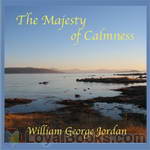 The Majesty of Calmness
The Majesty of Calmness
Change your life by changing your thoughts. The Majesty of Calmness is your guide to attracting prosperity, manifesting opportunities, and managing stress–all while discovering the values most precious to you. | |
By: William Graham Sumner (1840-1910) | |
|---|---|
 Forgotten Man and Other Essays
Forgotten Man and Other Essays
Sumner's popular essays were to give him a wider audience to distribute his anti-imperialism, his advocacy of free markets and the gold standard. He also had a long term influence over modern American conservatism. This is the final collection of his essays and is edited by Albert Galloway Keller. It concludes with The Forgotten Man where Sumner argued that, in his day, politics was being subverted by those proposing a "measure of relief for the evils which have caught public attention. | |
By: William H. Herndon (1818-1891) | |
|---|---|
 Herndon's Lincoln
Herndon's Lincoln
A biography of Abraham Lincoln by his long-time law partner, William Herndon and Herndon's collaborator, Jesse Weik. The book is notable for its extensive use of first hand interviews (unusual for its time) and for Herndon's overriding determination to convey an affectionate but frank picture of his law partner's life story as remembered by Lincoln's family, friends, associates and neighbors. | |
By: William H. Hudson (1841-1922) | |
|---|---|
 Far Away and Long Ago
Far Away and Long Ago
William Henry Hudson (August 1841 – 1922) was an author, naturalist and ornithologist. Hudson was born of U.S. parents living in the Quilmes Partido in Buenos Aires Province, Argentina, where he spent his youth studying the local flora and fauna and observing both natural and human dramas on what was then a lawless frontier. ‘Far Away and Long Ago’ is a classic memoir of a boy, fascinated by nature, on the Pampas in the 19th century. | |
By: William H. Prescott | |
|---|---|
 History of the Conquest of Mexico by William H Prescott (d. 1859)
History of the Conquest of Mexico by William H Prescott (d. 1859)
Much have I travell’d in the realms of gold,And many goodly states and kingdoms seen;Round many western islands have I beenWhich bards in fealty to Apollo hold.Oft of one wide expanse had I been toldThat deep-brow’d Homer ruled as his demesne;Yet never did I breathe its pure sereneTill I heard Chapman speak out loud and bold.Then felt I like some watcher of the skiesWhen a new planet swims into his ken;Or like stout Cortez, when with eagle eyesHe star’d at the Pacific – and all his menLook’d at each other with a wild surmise -Silent, upon a peak in Darien... | |
By: William Hanford Edwards | |
|---|---|
 Football Days: Memories of the Game and of the Men behind the Ball
Football Days: Memories of the Game and of the Men behind the Ball
A book reminiscent of the days when football was gaining popularity in America by MHAIJH85 | |
By: William Harmon Norton (1856-1944) | |
|---|---|
 The Elements of Geology
The Elements of Geology
Geology is a science of such rapid growth that no apology is expected when from time to time a new text-book is added to those already in the field. The present work, however, is the outcome of the need of a text-book of very simple outline, in which causes and their consequences should be knit together as closely as possible,—a need long felt by the author in his teaching, and perhaps by other teachers also. The author has ventured, therefore, to depart from the common usage which subdivides... | |
By: William Hazlitt | |
|---|---|
 The Plain Speaker: Opinions on Books, Men, and Things
The Plain Speaker: Opinions on Books, Men, and Things
The Plain Speaker: Opinions on Books, Men, and Things is a posthumous collection of essays by William Hazlitt, organized by his grandson, William Carew Hazlitt. The book contains some of Hazlitt's more famous essays that hadn't been previously published in book format. | |
By: William Healy, Mary Healy | |
|---|---|
 Pathological Lying, Accusation, and Swindling – A Study in Forensic Psychology
Pathological Lying, Accusation, and Swindling – A Study in Forensic Psychology
This work describes and analyzes several cases of pathological behavior. The interest comes not only from the cases themselves, but also from the of-its-time analysis which is mired in what we now know to be wrong thinking about mental illness, sexuality, gender, and race. - written by Mary Schneider | |
By: William Henry Samuel Jones (1876-1963) | |
|---|---|
 Malaria: A Neglected Factor in the History of Greece and Rome
Malaria: A Neglected Factor in the History of Greece and Rome
This short book has the objective of showing how important it is to stamp out malaria as soon as possible. Unlike a plague that suddenly takes it victims and leaves its survivors, malaria is a debilitating infection. It seizes all, fit and unfit alike, gradually lessening the general vitality until, in some cases, it has exterminated the people among whom it has become endemic. Extensive evidence has been compiled and summarised from consultation with medical authorities, antique literature, and historical sources to show how this insidious disease has undermined the integrity of a pair of ancient empires, and ultimately became a factor in their downfall. - Summary by Leon Harvey | |
 Malaria in Greek History
Malaria in Greek History
This book is an attempt to correct and develop the theory proposed tentatively in the little work Malaria. Put briefly, this theory is as follows. In the struggle for existence man has competed, not only with his fellow-men, but also with wild animals and disease- parasites. The fight against beasts was decided long before the historic period, but parasites have always been, and still are, formidable opponents. Whole tribes have been wiped out by plague, kala-azar and measles; and even when the disease-parasite does not win such a decisive victory, it often weakens a nation so much that the latter falls an easy victim to its healthier neighbours... | |
By: William Jackson | |
|---|---|
 Extracts from The New and Complete Newgate Calendar
Extracts from The New and Complete Newgate Calendar
Volume One of the New and Complete Newgate Calendar, covering the years 1700 through 1723, relates stories of British trials, the persons accused and the crimes committed. It is primarily based upon contemporary newspaper and pamphlet accounts of these trials. Where the criminal is particularly well known, such as the highwayman, burglar and escape artist Jack Sheppard, other sources were used as well. The readings used here are selected to illustrate different aspects of the eighteenth century criminal world and the British legal system. | |
By: William James (1842-1910) | |
|---|---|
 Essays in Radical Empiricism
Essays in Radical Empiricism
William James (1842 – 1910) was a pioneering American psychologist and philosopher. He wrote influential books on the young science of psychology, educational psychology, psychology of religious experience and mysticism, and the philosophies of pragmatism and Radical Empiricism. Essays in Radical Empiricism is a collection edited and published posthumously by his colleague and biographer Ralph Barton Perry in 1912. It was assembled from a collection of reprinted journal articles published from 1904–1905 which James had deposited in August 1906 at Harvard University, for supplemental use by his students. | |
 Varieties of Religious Experience
Varieties of Religious Experience
The Varieties of Religious Experience: A Study in Human Nature is a book by the Harvard psychologist and philosopher William James that comprises his edited Gifford Lectures on "Natural Theology" delivered at the University of Edinburgh in Scotland between 1901 and 1902. These lectures concerned the nature of religion and the neglect of science, in James' view, in the academic study of religion. Soon after its publication, the book found its way into the canon of psychology and philosophy, and has remained in print for over a century. | |
 The Moral Equivalent of War
The Moral Equivalent of War
The Moral Equivalent of War, the last public utterance of William James, is significant as expressing the opinions of a practical psychologist on a question of growing popular interest. For the past fifteen years the movement for promoting international peace has been enlisting the support of organizations and individuals the world over. That this is a question on which much may be said for the opposition, James, though a pacificist, admits with his usual fair-mindedness, pointing out that militarism... | |
 Pragmatism
Pragmatism
'Pragmatism' contains a series of public lectures held by William James in Boston 1906–7. James provides a popularizing outline of his view of philosophical pragmatism while making highly rhetorical and entertaining lashes towards rationalism and other competing schools of thought. James is especially concerned with the pragmatic view of truth. True beliefs should be defined as, according to James, beliefs that can successfully assist people in their everday life. This is claimed to not be relativism... | |
By: William Kingdon Clifford | |
|---|---|
 The Ethics of Belief
The Ethics of Belief
This is an essay on decision biases and a critique on prejudices, neatly written and thought provoking. | |
By: William Law | |
|---|---|
 A Dialogue between a Methodist and a Churchman
A Dialogue between a Methodist and a Churchman
William Law (1686-1761) was an Anglican priest, Christian mystic, and one of the most prominent, popular, and controversial theological writers of his time. Law revolutionized the way in which 18th century Anglicans engaged the spiritual aspect of their faith, and his popularity rivaled that of John and Charles Wesley. Law adapted mystical practices from early church writings to the practice and doctrine of the modern British church, with the intention of equipping the Anglican layman to pursue intimacy with Christ... | |
 Serious Call to a Devout and Holy Life
Serious Call to a Devout and Holy Life
This is one of the greatest devotional books of the Christian faith, inspiring thousands to a closer walk with their Lord. John Wesley was a close associate of Mr. Law and was influenced by this very book to some of his great work in England, and America too.William Law uses fictional characters to illustrate what true devotion is, and what it is not. This makes for a very interesting reading experience. Every Christian will find themselves challenged to a closer scrutiny of their lives after reading this book, and will, I believe, be inspired to a personal revival of their consecration and dedication to God. | |
By: William Makepeace Thackeray (1811-1863) | |
|---|---|
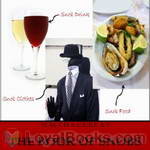 The Book of Snobs
The Book of Snobs
The necessity of a work on Snobs, demonstrated from History, and proved by felicitous illustrations:—I am the individual destined to write that work—My vocation is announced in terms of great eloquence—I show that the world has been gradually preparing itself for the WORK and the MAN—Snobs are to be studied like other objects of Natural Science, and are a part of the Beautiful (with a large B). They pervade all classes—Affecting instance of Colonel Snobley. | |
By: William Marcet (1828-1900) | |
|---|---|
 On chronic alcoholic intoxication : with an inquiry into the influence of the abuse of alcohol as a predisposing cause of disease
On chronic alcoholic intoxication : with an inquiry into the influence of the abuse of alcohol as a predisposing cause of disease
Physician William Marcet treated numerous cases of acute alcoholism and chronic alcoholism. He suggests gastrointestinal disease, gout and rheumatism are diseases associated with chronic alcoholism and might either be the cause or the result. Many of his patients complaining of gout, rheumatism, giddiness, sleeplessness, sore stomach, ringing in the ears, flashing specks of light, etc were in fact suffering from chronic alcoholism from recent drinking or days long gone and did not know it. He also discusses cases of nervous conditions that he treated with Oxide of Zinc, saying that the patient benefited by increased sleep and that there were no evil results... | |
By: William Morris (1834-1896) | |
|---|---|
 Signs of Change
Signs of Change
In the 1880s William Morris, the artist and poet famously associated with the Arts and Crafts movement, left the Liberal Party and threw himself into the Socialist cause. He spoke all over the country, on street corners as well as in working men's clubs and lecture halls, and edited and wrote for the Socialist League's monthly newspaper. Signs of Change is a short collection of his talks and writings in this period, first published in 1888, covering such topics as what socialism and work should be, and how capitalism and waste developed. | |
By: William Nelson Taft | |
|---|---|
 On Secret Service
On Secret Service
Detective-Mystery stories based on real cases solved by government agents. Created initially in 1865, the U.S. Secret Service continued to expand over the years, particularly following the assassination of President McKinley in 1901. The episodes in this compilation are comprised of authentic stories, dramatized, while remaining true to the actual incidences. - Summary by Roger Melin | |
By: William R. Lighton (1866-1923) | |
|---|---|
 Lewis and Clark: Meriwether Lewis and William Clark
Lewis and Clark: Meriwether Lewis and William Clark
Meriwether Lewis and William Clark – In the years 1804, 1805, and 1806, two men commanded an expedition which explored the wilderness that stretched from the mouth of the Missouri River to where the Columbia enters the Pacific, and dedicated to civilization a new empire. Their names were Meriwether Lewis and William Clark. This book relates that adventure from it’s inception through it’s completion as well as the effect the expedition had upon the history of the United States. | |
By: William Ruschenberger (1807-1895) | |
|---|---|
 The Elements of Botany
The Elements of Botany
The Elements of Botany is one of seven in a Series of First Books of Natural History Prepared for the Use of Schools and Colleges. It is a succinct little textbook that presents a solid introduction to plant science. | |
 The Elements of Entomology
The Elements of Entomology
The Elements of Entomology is one of seven in a Series of First Books of Natural History Prepared for the Use of Schools and Colleges. It is a succinct little textbook from 1845 presents an introduction to entomology. The author was a surgeon in the U.S. Navy and president of the Academy of Natural Sciences. | |
 Elements of Mammalogy
Elements of Mammalogy
The Elements of Mammalogy is one of seven in a Series of First Books of Natural History Prepared for the Use of Schools and Colleges. This succinct little textbook from 1845 presents an introduction to mammalogy. The information, albeit not current, is still interesting and of use as a general overview of mammal biology. The classification of mammals has changed considerably since this time. The author was a surgeon in the U.S. Navy and president of the Academy of Natural Sciences. | |
 Elements of Ornithology
Elements of Ornithology
The Elements of Ornithology is one of seven in a Series of First Books of Natural History Prepared for the Use of Schools and Colleges. This succinct little textbook from 1845 presents an introduction to ornithology. The information, albeit not current, is still interesting and of use as a general overview of bird biology and classification. The author was a surgeon in the U.S. Navy and president of the Academy of Natural Sciences. | |
 Elements of Anatomy and Physiology
Elements of Anatomy and Physiology
The Elements of Anatomy and Physiology is one in a Series of First Books of Natural History Prepared for the Use of Schools and Colleges. This succinct little textbook from 1852 presents an introduction to the workings of the human body. The information, albeit not current, is still interesting and of use as a general overview of the subject as well as interesting look into the period. Please note that some of the information may have changed considerably since this time. The author was a surgeon in the U.S. Navy and president of the Academy of Natural Sciences. - Summary by A. Gramour | |
 Elements of Conchology
Elements of Conchology
The fifth of the Series of First Books of Natural History, embraces that branch of our subject which treats of the Mollusca, or soft animals, and consequently, includes the Elements of Conchology. In the beauty and singularity of their forms, the variety and brilliancy of their colors, shells only yield to flowers…. Limited as this little volume is, it may prove a key to stores of information, even more interesting to many than the numerous fictions of the day. “Truth is stranger than fiction,” has been often said; and the beautiful truths brought to us by a study of animal life, in its various forms, are certainly more admirable and wonderful than any fiction of man’s creation... | |
By: William Sangster (1808-1888) | |
|---|---|
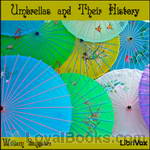 Umbrellas and Their History
Umbrellas and Their History
A whimsically serious look at the umbrella and society. | |
By: William Simonds (1860-1930) | |
|---|---|
 Student's History of American Literature
Student's History of American Literature
Engaging history of American Lit from the 1600's up through the late 1890's. The author, who was a professor at Knox College, really put a lot into this, combining national history with his love for literature. | |
By: William Strunk Jr. | |
|---|---|
 The Elements of Style
The Elements of Style
The Elements of Style (1918) by William Strunk, Jr. is an American English writing style guide. It is one of the best-known and most influential prescriptive treatment of English grammar and usage, and often is required reading in U.S. high school and university composition classes. The original 1918 edition of The Elements of Style detailed eight elementary rules of usage, ten elementary principles of composition, “a few matters of form”, and a list of commonly "misused" words and expressions... | |
By: William T. Hornaday (1854-1937) | |
|---|---|
 Our Vanishing Wild Life
Our Vanishing Wild Life
We are weary of witnessing the greed, selfishness and cruelty of “civilized” man toward the wild creatures of the earth. We are sick of tales of slaughter and pictures of carnage. It is time for a sweeping Reformation; and that is precisely what we now demand. -William Temple Hornaday | |
By: William Tecumseh Sherman (1820-1891) | |
|---|---|
 Sherman’s Recollections of California, 1846-1848, 1855-1857, from his Memoirs
Sherman’s Recollections of California, 1846-1848, 1855-1857, from his Memoirs
This librivox recording comprises three chapters from American Civil War General William Tecumseh Sherman’s Memoirs. The chapters deal with a posting to California in his pre-Civil War military career in the years 1846-1848. While many of his colleagues saw action in the Mexican-American War, Sherman performed administrative duties in the captured territory of California. Along with fellow Lieutenants Henry Halleck and Edward Ord, Sherman embarked from New York on the 198-day journey around Cape Horn aboard the converted sloop USS Lexington... | |
By: William Walker Atkinson (1862-1932) | |
|---|---|
 Thought Vibration, or The Law of Attraction in the Thought
Thought Vibration, or The Law of Attraction in the Thought
William Walker Atkinson (December 5, 1862 – November 22, 1932) was an attorney, merchant, publisher, and author, as well as an occultist and an American pioneer of the New Thought movement.Atkinson was a prolific writer, and his many books achieved wide circulation among New Thought devotees and occult practitioners. He published under several pen names, including Magus Incognito, Theodore Sheldon, Theron Q. Dumont, Swami Panchadasi, Yogi Ramacharaka, Swami Bhakta Vishita, and probably other names not identified at present... | |
 Hindu-Yogi Science Of Breath
Hindu-Yogi Science Of Breath
Increase your awareness about the forgotten art of breathing as researched, practiced and written by our Eastern brothers. Inside you will find how our Western society has perhaps forgotten the proper way to breath, hence leaving us more susceptible to disease and poor health. This book explains in layman's terms what happens inside our bodies when we inhale and then exhale. And the effects improper breathing has on both our internal and external extremities. It describes nature's proximity for the respiratory, and circulatory systems. The final sections include invaluable Yogi breathing exercises for increased breathing awareness and better health. Salaam. (Mike Justice) | |
 Memory: How to Develop, Train and Use It
Memory: How to Develop, Train and Use It
An in-depth series of chapters devoted to the use of our memory system; as the title suggests, how to develop our memory system, how to train it to improve it, and how to make the best use of it in our everyday lives, and to improve our positions in life. This is not intended to be a series of chapters to impress friends and colleagues, nor to play 'tricks' on others, rather it is for the betterment of individuals in whatever walk of life in which they may be involved by training and using their memory toward that end. | |
By: William Wells Brown (1814-1884) | |
|---|---|
 My Southern Home or, The South and Its People
My Southern Home or, The South and Its People
William Wells Brown was born a slave, near Lexington, Kentucky. His mother, Elizabeth, was a slave; his father was a white man who never acknowledged his paternity. Brown escaped slavery at about the age of 20. For many years he worked as a steam boatman and as a conductor for the Underground Railroad in Buffalo, New York. In 1843, he became a lecturer for the Western New York Anti-Slavery Society, and was a contemporary of Frederick Douglass.Brown went to Europe in 1849 to encourage British support for the anti-slavery movement in the United States... | |
 Three Years In Europe
Three Years In Europe
William Wells Brown was born a slave, near Lexington, Kentucky. His mother, Elizabeth, was a slave--his father a white man who never acknowledged his paternity. Brown escaped slavery at about the age of 20. For many years he worked as a steamboatman and as a conductor for the Underground Railroad in Buffalo, New York. In 1843, he became a lecturer for the Western New York Anti-Slavery Society, and was a contemporary of Frederick Douglass.Brown went to Europe in 1849 to encourage British support for the anti-slavery movement in the United States... | |
By: William Westgarth (1815-1889) | |
|---|---|
 Personal Recollections of Early Melbourne and Victoria
Personal Recollections of Early Melbourne and Victoria
Son of John Westgarth, surveyor-general of customs for Scotland, was born at Edinburgh, in June 1815. He was educated at the high schools at Leith and Edinburgh, and at Dr Bruce’s school at Newcastle-on-Tyne. He then entered the office of G. Young and Company of Leith, who were engaged in the Australian trade, and realizing the possibilities of the new land, decided to emigrate to Australia. He arrived in Melbourne, then a town of three or four thousand inhabitants, in December 1840.When the new colony was constituted Westgarth headed the poll for Melbourne at the election for the legislative council... | |
By: William Worthington Fowler (1833-1881) | |
|---|---|
 Woman on the American Frontier
Woman on the American Frontier
Many books describe the role of men during American history. However, at the same time, women did much: comforted, fought, helped, raised children, and much more. This book is full of mini-biographies of women in many places, and many ages- each chapter telling about a different subject. | |
By: Willis J. Abbot (1863-1934) | |
|---|---|
 Aircraft and Submarines
Aircraft and Submarines
"Aircraft and Submarines" is a history of the development of these forms of transportation and their ultimate use in warfare. Also a brief history of submarine use in commercial applications. A thoroughly enjoyable piece for anyone interested in the detailed development of these modes of transportation. | |
By: Winfrid Herbst | |
|---|---|
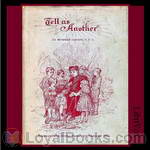 Tell Us Another! Stories That Never Grow Old
Tell Us Another! Stories That Never Grow Old
A collection of 65 little stories for the Catholic child (and adult), designed to captivatingly teach the truths and morals of the faith. This is the companion volume to "Just Stories" by the same author. | |
 Just Stories: The Kind That Never Grow Old
Just Stories: The Kind That Never Grow Old
Good Books are wise counselors. They point out the right way in the devious paths of life. Have we not often stood at the juncture of two roads, the one of righteousness and the other of unfaithfulness, and was it not then that some golden little book acted the part of an opportune adviser and directed us down the highway of truth? Is there one of us who can truthfully say that good books have not been his loyal and trustworthy helpers, his vigilant guardians in life's intricate ways? This unpretentious little book of goodness stories, a companion volume to "Tell Us Another," must speak for itself... | |
By: Winifred Stephens Whale (1870-1944) | |
|---|---|
 Women of the French Revolution
Women of the French Revolution
One aspect of this subject of revolutionary women, their connection with the secret societies of the day I have purposely ignored. It is obscure and highly controversial. Unfortunately, though these societies have been much, written about, and especially of late, it has often been in a partisan spirit. This book will constantly deal with parties, but I trust not in the spirit of a partisan. Of the three methods of treating this subject, the strictly chronological method, the biographical, and a classification according to the play of ideas and the modes and fields of action, I have chosen the last... | |
By: Winston Churchill (1874-1965) | |
|---|---|
 The River War: An Account of the Reconquest of the Sudan
The River War: An Account of the Reconquest of the Sudan
When the self-proclaimed Mahdi (“Guided One”) gathered Islamic forces and kicked the Anglo-Egyptians out of the Sudan, he unleashed a backlash. With the image of the heroic General Charles Gordon dying at Khartoum, the British public was ready to support a war to reclaim the lost territories. And when the political time was right, a British-Egyptian-Sudanese expedition led by the redoubtable Herbert Kitchener set out to do just that.The river involved was the Nile. For millennia, its annual flood has made habitable a slender strip, though hundreds of miles of deserts, between its tributaries and its delta... | |
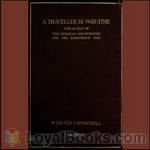 A Traveller in War-Time
A Traveller in War-Time
This is a collection of a series of journalistic articles written during his travels throughout WWI era Europe that Churchill — the American author, not the famed British statesman — published in 1917; the book version came out in 1918. The writing is sharp, straightforward, and rarely sentimental, with loads of local color and occasional humor. | |